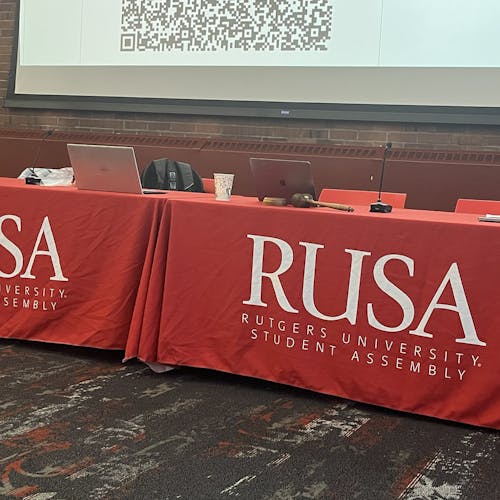Rutgers removes phrase on from website after criticism

The University received criticism before the start of the semester for warning students “there is no such thing as ‘free’ speech” on its Bias Prevention and Education Committee (BPEC) website.
After Campus Reform, a national college news site, reported on the webpage’s denial of free speech at the University, the school quickly removed the statement from the website.
Anne Newman, director of Student Conduct at Student Affairs, assured there is no policy at Rutgers that infringes on the right to free speech.
“There was information on the Bias site that gave the impression that there were University consequences for free speech,” Newman said. “Just to be clear, there are no free speech limits found in any policy at Rutgers University. Once this information was brought to our attention we immediately corrected the website by removing that text.”
The statement was a part of BPEC’s list on five ways to avoid committing “bias incidents." It was listed under the header “Think Before You Speak.”
According to the website, the Bias Prevention Committee has been around on the New Brunswick/Piscataway campus since 1992. The committee provides bias prevention education to staff, students and faculty at Rutgers.
Students who experience or witness bias incidents may file a detailed "Incident Reporting Form" online and will be contacted within 24 hours of filing. The form questions whether the student was a witness or victim in the situation and asks about the parties involved. A student can add photos, videos or emails that substantiate the bias incident.
Rutgers is not the only university taking a closer look at educating its student body on avoiding bias speech. A similar situation occurred at the University of New Hampshire over the summer.
The University of New Hampshire released a “Bias-Free Language Guide” in July, featuring suggestions on how to avoid words or phrases that might offend others. Included in the handbook was a suggestion to use the words “U.S. citizen” or “resident of the U.S.” instead of “American.”
Shortly after various media platforms reported on the guide, news outlets such as Campus Reform, The Daily Caller and The Liberty Standard brought greater attention to the matter. The handbook was then removed from the school’s website.
The president of UNH issued a statement saying the guide was merely a suggestion for students and not a mandatory university policy.
“While individuals on our campus have every right to express themselves, I want to make it absolutely clear that the views expressed in this guide are not the policy of the University of New Hampshire," President Mark Huddleston said. "The only UNH policy on speech is that it is free and unfettered on our campuses.”
Rutgers students weighed in on the topic of limiting free speech on college campuses and the pros and cons of a bias committee.
Marques Jules, a School of Arts and Sciences sophomore, agrees that “there is no such thing as free speech,” as the BPEC stated on their website. All free speech has consequences, he said.
“If we truly had free speech, then we wouldn’t fear backlash from what we say,” Jules said. “In college, (students) are learning, and that should include learning about treating others with respect. In the real world, saying offensive things can get us in a lot of trouble, so teaching students how to avoid offensive language is important for our future when we get jobs.”
But Stanley Yarlagada, a School of Arts and Sciences sophomore, disagrees with the presence of BPEC on campus. He said BPEC prevents students from learning how to handle situations on their own and sees the committee as an infringement on free speech.
"A bias prevention committee won't fix anything in the long run," he said. "Students need to learn how to handle bias situations on their own. It's good Rutgers is promoting tolerance, but a committee is going too far. Bigoted people have the right to say what they want, and students should be able to recognize and deal with their insensitivity without help from a committee."



